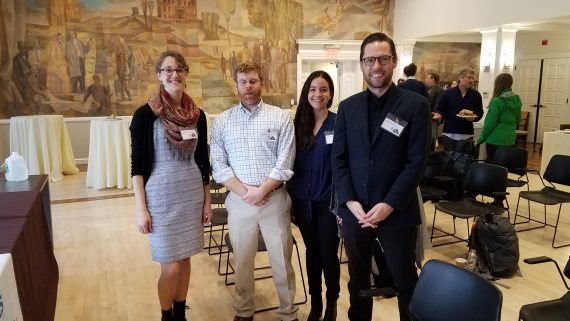Water: Visions of the Future ’19
Monday, June, 10th, 2019 Annual Symposium

Our relationship to water is different than it has ever been before. For instance, instead of working to keep oceans at bay, planners now strategize safe ways to let sea waters wash into coastal cities. Instead of fighting against natural processes, farmers now adopt regenerative practices that promote soil and watershed health. The 2019 WSSS symposium explored the different ways in which practitioners work to reshape and form new relationships with water in pursuit of a positive and dynamic future. Presenters included Brook Barton, senior director of water and food at CERES, who oversees private sector engagement with issues of water sustainability and Alison Bowden, The Nature Conservancy's Conservation Director of Rivers, Coasts & Oceans who works implementing nature-based solutions to improve water quality and habitat resilience. Other speakers included Tufts Economics professor Dr. Ujjayant Chakravorty, who studies a variety of environmental topics including sustainable energy sources and groundwater markets, environmental analyst and planner Julie Conroy, Tufts Urban and Environmental Planning lecturer Dr. Ann Rappaport, and Sarah Valenick of the Massachusetts Oyster Project. WSSS students presented their work, including a field project on “Barriers and Incentives for Dam Removal” executed in collaboration with the Ipswich River Watershed Association as well as a wetland restoration project in partnership with the Cape Cod Commission. Special thanks to our sponsors at the Stockholm Environment Institute, Massachusetts Clean Energy Center and the Tufts Friedman School of Nutrition Science and Policy.
2019 Symposium Team
(left to right): Emily Liss, Pat Maloney, Alyssa Melendez and David Morgan
